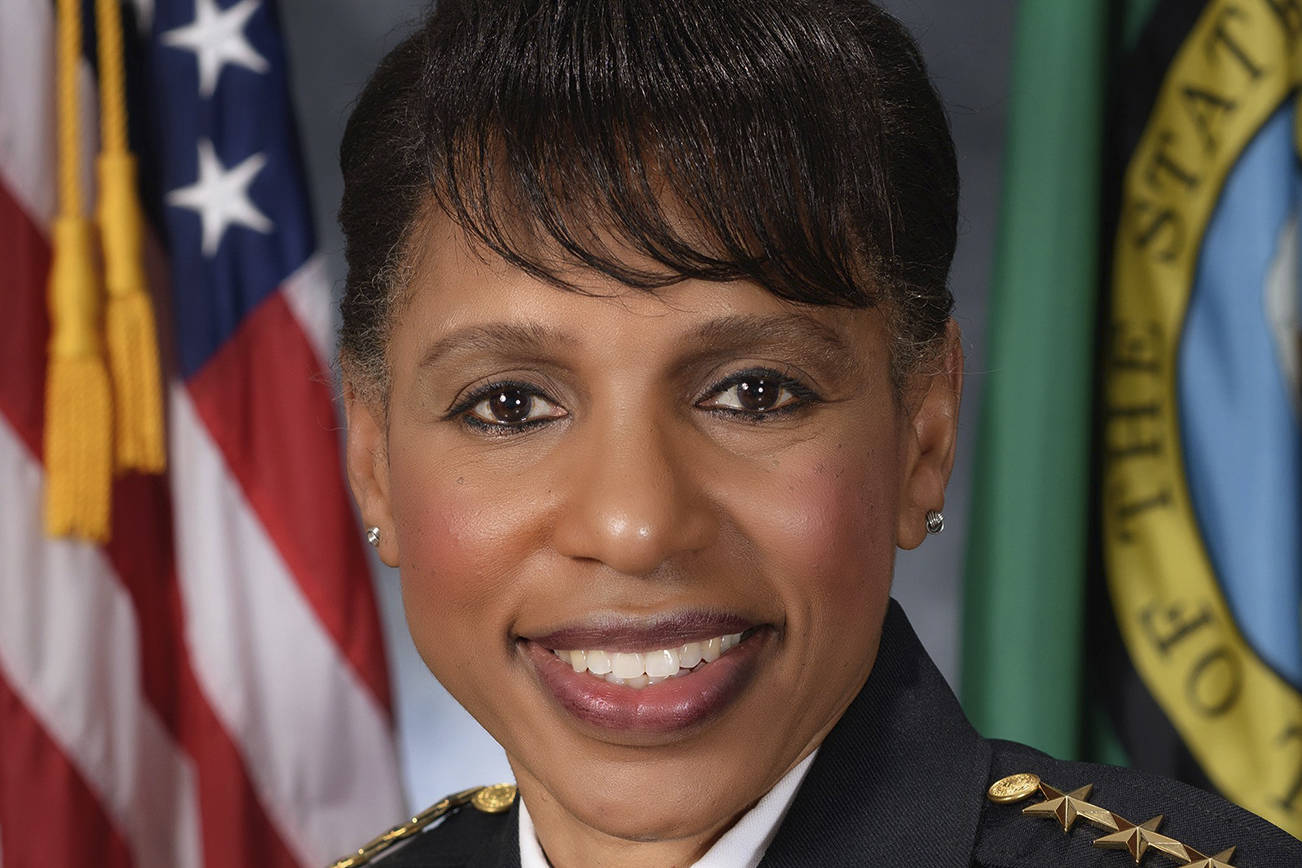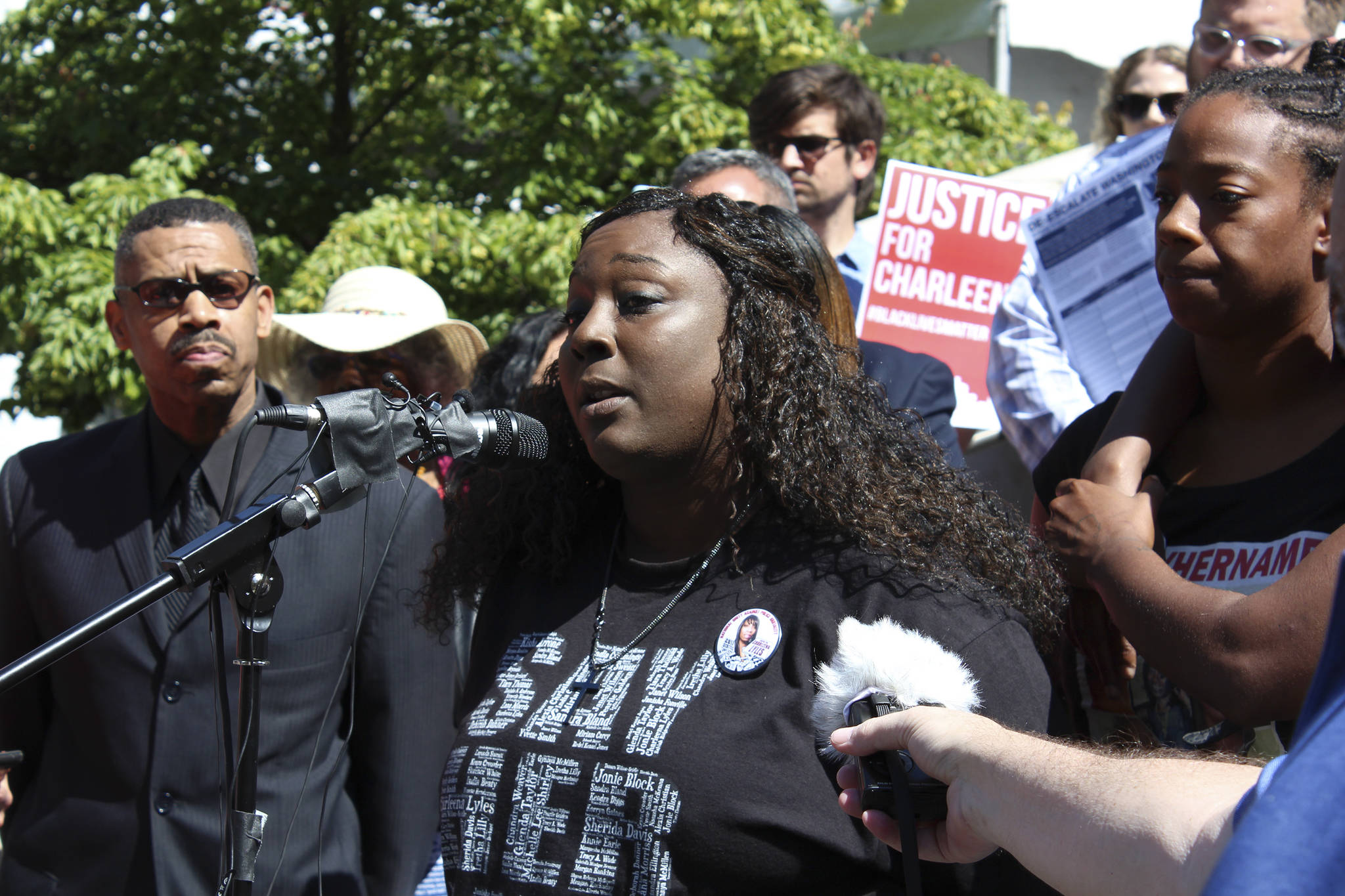An African American woman will head Seattle’s police force for the first time, following the Seattle City Council’s 8-0 confirmation of Interim Police Chief Carmen Best on Monday.
Best will be tasked with overseeing 1,400 officers, and ensuring that the police department sustains court-ordered reforms designed to reduce excessive force and improve its relationship with marginalized communities. The majority of city councilmembers voiced their confidence in Best’s ability to continue instituting police reforms, while Councilmember Kshama Sawant conceded that her “yes” vote was only in solidarity with her black and brown supporters.
The significance of the historic vote was not lost on members of the public, most of whom rose from their chairs when, at the start of the meeting, Councilmember Lorena Gonzalez asked people to stand if they supported Best’s confirmation.
“Take it in Chief Best,” Gonzalez said, as Best smiled and shook her head in agreement. “I think this is … a testament to the skill and to the work ethic, and to the commitment you have to every single face in this audience.”
Councilmember Teresa Mosqueda echoed praise for Best, noting that she showed vast knowledge of the police department and “roots here in the community that help create accountability.”
Court-appointed monitor Merrick Bobb, who is charged with overseeing Seattle’s police reform, also sat in the front row of the audience. His presence was noteworthy, given that U.S. District Judge James Robart ruled that the Seattle Police Department (SPD) had fully complied with a 2012 consent decree in January. Over the past six years, the police department has reformed its use of force policies, retrained its officers and worked to improve relations with citizens. Now Best will lead the department during a two-year monitoring period in which SPD must demonstrate continued compliance with reforms in order to end federal oversight.
Best became the interim chief shortly before the ruling in January, following Police Chief Kathleen O’Toole’s resignation at the end of 2017. A 26-year veteran of the SPD, Best served as deputy chief under O’Toole, where she oversaw the Community Outreach section as well as the Patrol Operations, Criminal Investigations, and Special Operations Bureaus. The Tacoma native will receive a Master’s in Criminal Justice Leadership from Northeastern University this year, according to the SPD website.
“I’m counting on all of you for your support,” Best said while facing the audience after her confirmation. “It’s great to be supported in the good times, but we’re going to have tough times ahead of us too. And during those times I look for all of us … to work together to make sure that we’re on the same page in doing what’s needed to keep the city of Seattle great, and the Seattle Police Department the wonderful and outstanding department that I know it is and that it will continue to be.”
Despite Best’s seamless confirmation, the selection process for SPD’s next leader was littered with hiccups. Her confirmation followed a circuitous route in which she was initially excluded from a list of three finalists in May, only to be nominated by Mayor Jenny Durkan less than two months later. The exclusion sparked public opposition from the community and the Seattle Police Officers Guild — Seattle’s largest police union — which is currently in contract negotiations with the city. In a stunning reversal, finalist Cameron McLay – Pittsburgh’s former chief of police— relinquished his spot as a candidate in July, forging a path for Best to join the running with Minneapolis Police Inspector Eddie Frizzell and Assistant Chief of Austin Police Department Ely Reyes. Mayor Jenny Durkan nominated Best as the next Chief of Police on July 17 after interviewing all of the candidates.
Yet the opaque process drew scrutiny from community members who wondered why Best was excluded as a candidate in the first place. On July 7, Senior Deputy Mayor Michael Fong partially explained the move to the search committee members in an email obtained by Seattle Weekly through a public records request.
“Following several conversations over the past several weeks about the importance of police reform, finalist and former Pittsburgh Police Chief Cameron S. McLay has informed Mayor Durkan that he is withdrawing from consideration for the role of Seattle Police Chief,” Fong wrote. “Chief McLay and Mayor Durkan agree that he can most effectively support our continued reform efforts outside of the Chief of Police role.” On July 6, Durkan asked the Seattle Department of Human Resources to reconvene the competitive examination needed to pick the three highest ranking candidates, the email continued. The next day, the assessors who included Fong, “recommended an additional candidate Interim Chief Carmen Best,” he wrote.
Councilmember Sawant also questioned Durkan’s selection process, calling it “a racist elimination of Carmen Best from the finalists” during Monday’s city council meeting. However, Sawant’s disapproval of the process didn’t save Best from her critcism. She chastised Best for not directly acknowledging the continued issue of racial bias and excessive use of force in SPD.
“I’m not convinced that Chief Best is prepared to carry out the kind of fundamental transformation that is needed, as I was not convinced with O’Toole, and I was certainly not convinced by any of the other finalists for the position this year,” Sawant said, explaining that her supporters asked her not to obstruct Best’s confirmation.
Although she received overwhelming support from communities of color, Best will also have to prove herself to leaders who fear that Best will maintain the status quo. KL Shannon, Police Accountability Chair for the Seattle/King County NAACP, wrote in a July 20 email to Seattle Weekly that she does not believe Best will drastically change SPD’s disproportionate policing of communities of color.
“Chief Best’s bread and butter is the Seattle Police Department … she is going to have to figure out how to balance the community, Durkan’s office, and SPD,” Shannon wrote. “It’s never going to happen. No matter how good her intentions will be.”
mhellmann@seatttleweekly.com









